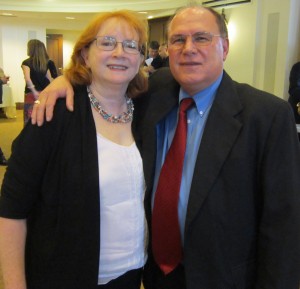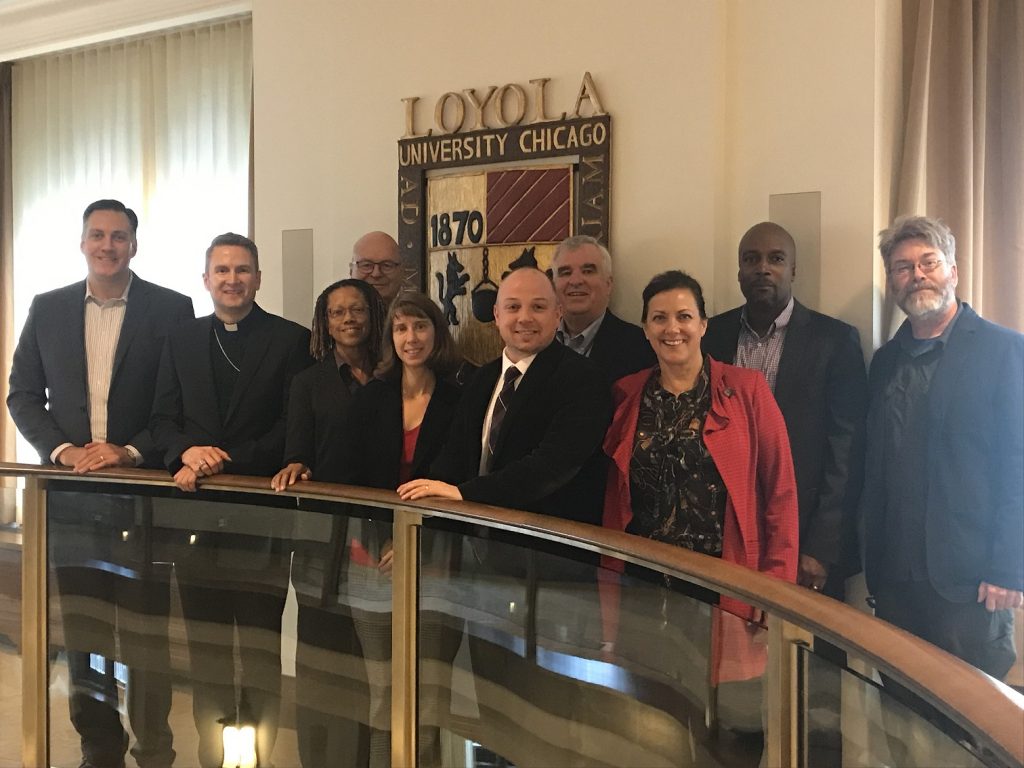
They say without a vision, the people might perish. Make no mistake, John Fontana has a vision.
Back in May of 2018, I sat down with John to do a long interview for my radio show, Things Not Seen, which airs weekly here in Chicago.
He was telling me about a new program he was developing in conjunction with the Institute of Pastoral Studies, called the Ignatian Legacy Fellows–which aims to completely redefine how C-suite executives think about retirement.
“Members of the baby boom generation everyday are passing into what we would consider to be retirement age,” Fontana said. “It’s an untapped resource of capital certainly, but it’s also an untapped resource of wisdom and experience. And if we do what we normally do with retirees, which is just a kind of shoo them away in our society, we’re going to lose all of that.”
With this, he breaks into a big smile. “The Ignatian Legacy Fellows Program is an attempt to capture that.”
Fontana himself is a businessman and a pastoral theologian. He attributes the grounding of his successful career to an Ignatian retreat he took when he was 23 years old. That experience shaped the way he thought about not only his career, but also about every facet of his life.
“So for me, the movement of God that I’m able to see in the workplace, and in my family life, is what sustains me as a human being and also has me participating in the vocational mission to be able to build the kingdom,” Fontana said.
When we spoke last year, Fontana and his co-director, Mariann Salisbury, at the Ignatian Legacy Fellows Program were in the midst of recruiting their first cohort of a couple dozen retired executives to commit to a year of travel and engagement to explore Jesuit universities and missions around the world, to grow in solidarity, and to deepen their faith in the service of others.
Now, a few weeks ago this past September, the cohort began their pilgrimage. They kicked things off with a week here at Loyola, meeting with students and faculty, and doing a deep study in the Ignatian spiritual exercises, engaging the Stritch School of Medicine, the Institute for Environmental Sustainability, the Hank Center for Catholic Intellectual Heritage, the Institute of Pastoral Studies, the Jesuit high schools and Arrupe Program. They also engaged Matt Malone, SJ, Editor of America magazine.
Over the coming year, they will spend a week every other month in a new location. Their next stop will be the Jesuit School of Theology at Santa Clara University, located in Berkeley, California, as well as the Ricci Center at the University of San Francisco, and Santa Clara University’s centers of learning, where they will explore the social ethics of entrepreneurship and business.
Their travels will continue with a trip to explore the Church’s missions to the poor in Lima, Peru. Thereafter, the cohort heads to Boston College and to Georgetown University. “Then we will culminate the year-long journey as we go to Spain as our pilgrimage continues and really get caught up in the spirit of Ignatius,” Fontana said. After Spain, the journey will conclude in Rome in September 2020.
The challenge for Fontana and the Ignatian Legacy Fellows’ leadership team is to shift the paradigm on aging from vulnerability to wisdom. They will utilize the life stories of each member of the cohort to hone reflective skills for adaptive leadership. Executives transitioning into retirement are thought to have “made it,” but they face profound questions about their role in the world, the meaning of their work, and their legacy.
The hope is that the program will set the tone and open up serious spiritual possibilities for these executives as they enter the “third chapter” of their earthly journeys. Fontana hopes that this will also translate into an awakened sense of stewardship for institutions that provide religious and theological education.
“What’s interesting is these days a lot of money is going toward business schools or medical schools or engineering and STEM programs,” Fontana continues.
“Theologians don’t make a lot of money. The people who train in pastoral ministry don’t get rich, so that the resources are not coming into those places of higher education right now. As a result, the study of theology is undervalued.”
The program will leverage the strengths of each host institution, situating the learning cohort in a contextual environment that brings their theological studies to life. In each location, these higher questions will be grounded in the real-world issues of poverty, justice, and inequalities of access that face communities around the globe.
“This program is about supporting theological education,” says Fontana, “because if you don’t have that, you’re going to have a tough time on values and ethical decision making in your business life or your family life. . . and the Jesuit tradition is grounded in the liberal arts; without that grounding, the Jesuit schools don’t have a reason for being.”
They say, without a vision, the people might perish.
Make no mistake, the Ignatian Legacy Fellows cohort is living the vision and making it happen.
You can follow them on Facebook and LinkedIn: https://www.linkedin.com/company/ignatianlegacyfellows/
You can listen to the full interview at the Things Not Seen Radio website: https://www.thingsnotseenradio.com/shows/1814b-fontana
By David Dault

